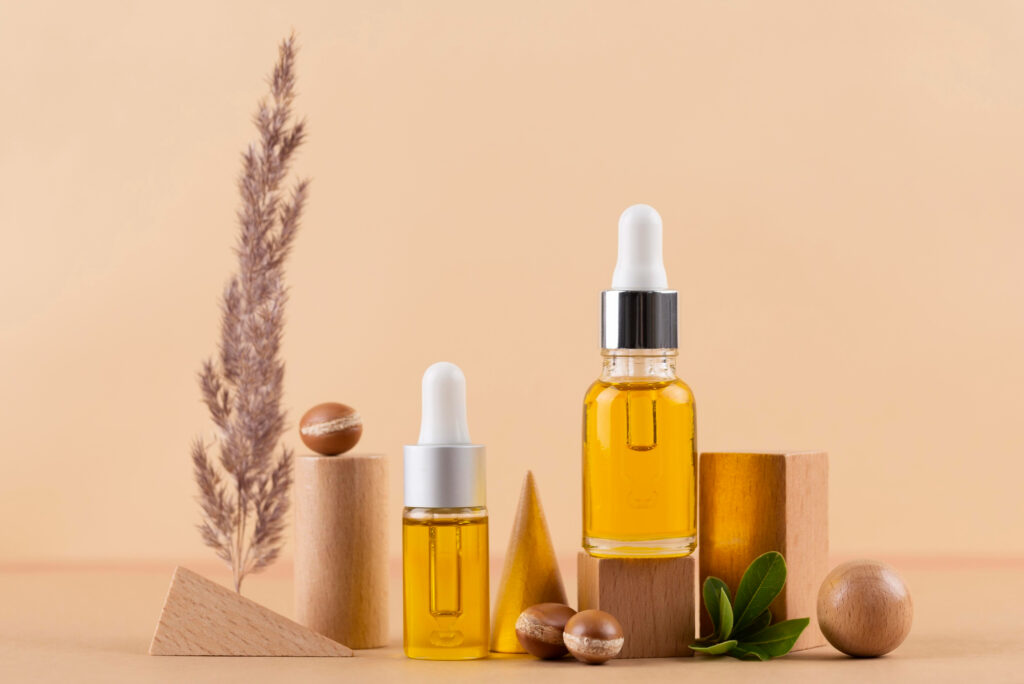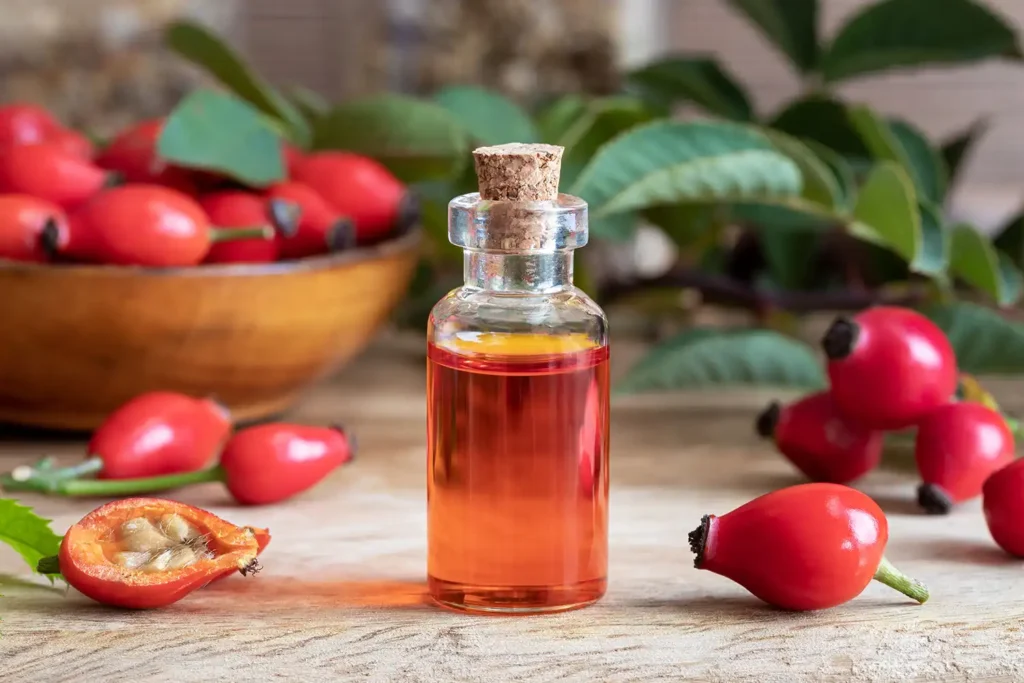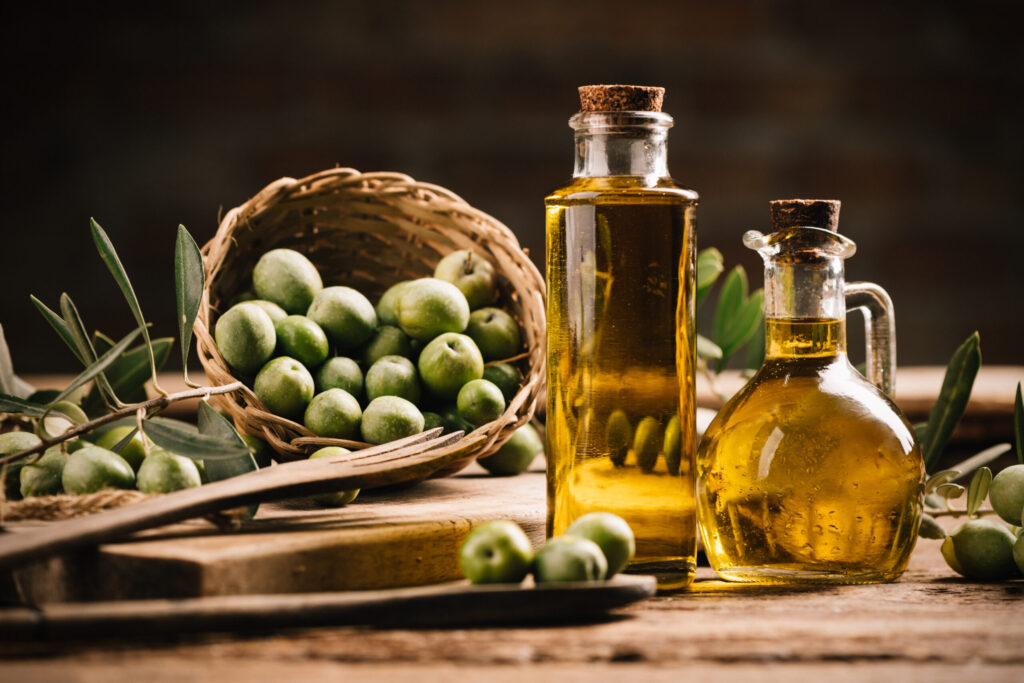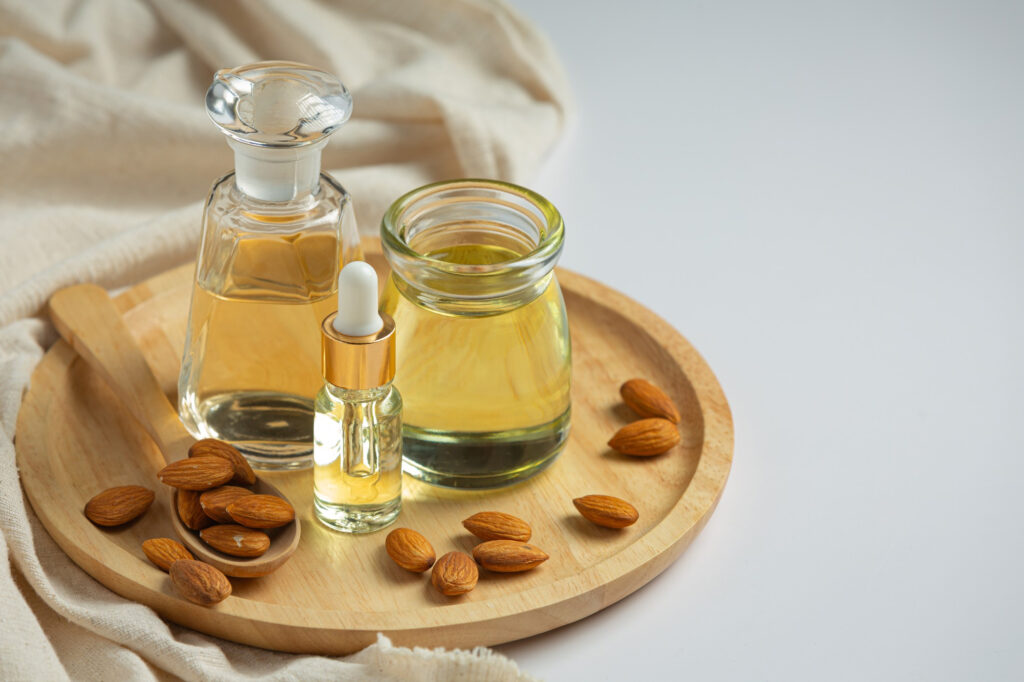
Oils have been used for centuries as a natural way to care for the skin. They can hydrate, nourish, and protect, leaving your skin looking and feeling its best. With so many oils available today, it can be confusing to know which ones are right for your skin type and concerns. In this article, we’ll explore: Which oils are best for your skin, along with their benefits. By the end, you’ll have a better understanding of how to incorporate oils into your skincare routine.
Why Use Oils for Skin?
Before diving into specific oils, let’s talk about why using oils on your skin can be beneficial. Oils are packed with essential fatty acids, vitamins, and antioxidants that can help improve your skin’s health. They can:
- Hydrate: Oils can lock in moisture, keeping your skin soft and supple.
- Nourish: Many oils are rich in vitamins and nutrients that can help repair and rejuvenate your skin.
- Protect: Oils can form a barrier on the skin, protecting it from environmental damage.
- Balance: Some oils can help regulate your skin’s natural oil production, making them great for both dry and oily skin types.
Also Read: 8 Best Ways to Get Rid of Dead Skin From Your Face
Which Oils Are Best For Your Skin?
Now, let’s look at some of the most popular oils for skin and what makes them beneficial.
-
Jojoba Oil
Jojoba oil is one of the most versatile oils for skincare. It’s actually a liquid wax, which closely resembles the natural sebum (oil) our skin produces. This makes it great for balancing oil production, whether your skin is dry or oily.

- Benefits: Jojoba oil is non-comedogenic, meaning it won’t clog your pores. It’s also rich in vitamin E, which is a powerful antioxidant that helps protect your skin from environmental stressors. Jojoba oil can be used as a moisturizer, makeup remover, or even as a soothing balm for dry or irritated skin.
- Best For: All skin types, including sensitive and acne-prone skin.
For more information on how to use jojoba oil, check out this article from Healthline.
-
Argan Oil
Argan oil, often called “liquid gold,” is extracted from the kernels of the argan tree native to Morocco. It’s highly moisturizing and packed with fatty acids and vitamin E, making it a fantastic oil for dry or mature skin.
- Benefits: Argan oil is deeply hydrating and helps restore the skin’s natural barrier. It can reduce the appearance of fine lines and wrinkles and improve skin elasticity. Its anti-inflammatory properties also make it great for soothing irritated skin.
- Best For: Dry, aging, or sun-damaged skin.
For more tips on using argan oil, visit this guide from Medical News Today.
-
Rosehip Oil
Rosehip oil is derived from the seeds of rose bushes and is known for its regenerative properties. It’s rich in vitamins A and C, which are essential for skin renewal and collagen production.

- Benefits: Rosehip oil helps reduce the appearance of scars, stretch marks, and hyperpigmentation. It also brightens the skin and evens out skin tone. The high content of linoleic acid in rosehip oil makes it a good choice for those with oily or acne-prone skin, as it helps to balance oil production.
- Best For: Oily, acne-prone, and uneven skin tone.
For more on the benefits of rosehip oil, check out this article from Byrdie.
-
Coconut Oil
Coconut oil is a popular oil known for its deep moisturizing properties. It’s rich in fatty acids, particularly lauric acid, which has antimicrobial properties.
- Benefits: Coconut oil is excellent for moisturizing very dry skin. It can also be used as a makeup remover or as a deep conditioning treatment for hair. However, because it’s highly comedogenic, it can clog pores and may not be suitable for facial use on oily or acne-prone skin.
- Best For: Very dry skin and body use.
For more information on using coconut oil for skin, visit this guide from the American Academy of Dermatology.
-
Tea Tree Oil
Tea tree oil is a powerful essential oil known for its antibacterial and anti-inflammatory properties. It’s often used in treatments for acne and other skin conditions.
- Benefits: Tea tree oil helps reduce acne-causing bacteria and can be used as a spot treatment for blemishes. It also helps soothe irritated skin and reduce redness. However, because it’s potent, it should be diluted with a carrier oil before applying it to the skin.
- Best For: Oily, acne-prone skin.
For tips on safely using tea tree oil, check out this article from Verywell Health.
-
Olive Oil
Olive oil is a staple in many kitchens, but it’s also a wonderful oil for skin care. It’s rich in vitamins A, D, E, and K, and has strong antioxidant properties.

- Benefits: Olive oil deeply moisturizes the skin and helps restore the skin’s natural barrier. It’s particularly beneficial for dry, sensitive, or mature skin. Olive oil can also be used as a gentle makeup remover and to soothe dry, flaky patches.
- Best For: Dry, sensitive, and mature skin.
For more on the skincare benefits of olive oil, visit this article from Everyday Health.
-
Marula Oil
Marula oil is extracted from the nuts of the marula tree and is known for its lightweight texture and high antioxidant content. It’s rich in fatty acids and absorbs quickly into the skin.
- Benefits: Marula oil is highly moisturizing without being greasy, making it ideal for dry or combination skin. It also helps reduce redness and inflammation, making it suitable for sensitive skin. The oil is also rich in antioxidants, which help protect the skin from environmental damage and premature aging.
- Best For: Dry, combination, and sensitive skin.
For more details on marula oil, check out this guide from Healthline.
-
Grapeseed Oil
Grapeseed oil is a lightweight oil that is easily absorbed by the skin. It’s rich in antioxidants, including vitamin E and polyphenols, which help protect the skin from damage.
- Benefits: Grapeseed oil is great for balancing oily skin and can help reduce the appearance of acne scars. Its anti-inflammatory properties make it a good choice for those with sensitive or reactive skin. Grapeseed oil also tightens and tones the skin, making it a popular choice for anti-aging routines.
- Best For: Oily, acne-prone, and sensitive skin.
For more information on the benefits of grapeseed oil, visit this article from Medical News Today.
-
Almond Oil
Almond oil is a gentle oil that is rich in vitamins E and K. It’s known for its soothing and emollient properties, making it a popular choice for those with sensitive skin.

- Benefits: Almond oil helps to soften and smooth the skin, making it ideal for dry or irritated skin. It can also help reduce dark circles under the eyes and improve skin tone. Almond oil is light and absorbs quickly, making it suitable for everyday use.
- Best For: Dry, sensitive, and irritated skin.
For more on how to use almond oil for skin, check out this guide from Byrdie.
-
Avocado Oil
Avocado oil is a nutrient-rich oil that is packed with vitamins A, D, and E, as well as fatty acids. It’s known for its deeply moisturizing properties and ability to soothe and heal the skin.
- Benefits: Avocado oil is highly moisturizing and helps to restore the skin’s natural barrier. It’s particularly beneficial for dry, damaged, or aging skin. The oil also has anti-inflammatory properties, making it useful for soothing irritated or sunburned skin.
- Best For: Dry, aging, and damaged skin.
For more details on the benefits of avocado oil, visit this article from Healthline.
How to Choose the Right Oil for Your Skin Type
Choosing the right oil for your skin type is crucial to getting the best results. Here are some tips to help you make the right choice:
Also Read: Can You Use Retinol and Niacinamide Together? A Comprehensive Guide
- For Dry Skin: Look for rich, moisturizing oils like coconut, avocado, or argan oil. These oils provide deep hydration and help restore the skin’s natural barrier.
- For Oily Skin: Opt for lightweight oils that won’t clog your pores, such as grapeseed, jojoba, or rosehip oil. These oils can help balance oil production and reduce the appearance of acne.
- For Sensitive Skin: Choose gentle, soothing oils like almond, marula, or olive oil. These oils are less likely to irritate and can help calm and protect sensitive skin.
- For Combination Skin: If you have combination skin, look for versatile oils that can hydrate without being too heavy. Jojoba and marula oils are great options because they are lightweight and can balance the skin’s natural oil production.
- For Aging Skin: Oils that are rich in antioxidants and vitamins, like argan, rosehip, and avocado oil, are ideal for aging skin. These oils help to improve skin elasticity, reduce the appearance of fine lines, and protect against environmental damage.
How to Incorporate Oils into Your Skincare Routine
Once you’ve chosen the right oil for your skin, it’s important to know how to use it effectively. Here are some tips on how to incorporate oils into your daily skincare routine:
- As a Moisturizer: After cleansing your face, apply a few drops of your chosen oil to your skin. Gently massage it in, allowing the oil to absorb fully. You can use the oil alone or layer it under your regular moisturizer for added hydration.
- As a Makeup Remover: Oils like coconut, olive, or jojoba oil can be used as natural makeup removers. Apply the oil to a cotton pad or directly onto your skin and gently wipe away makeup, including stubborn waterproof mascara. Follow up with your regular cleanser to remove any residue.
- As a Facial Oil Treatment: For an extra boost of nourishment, you can use oils as a treatment. Apply a thicker layer of oil to your face before bed, allowing it to work overnight as a hydrating mask. This is particularly beneficial for dry or aging skin.
- As a Carrier Oil: If you’re using essential oils like tea tree or lavender oil, always dilute them with a carrier oil such as jojoba or almond oil before applying them to your skin. This helps prevent irritation and ensures the essential oils are safe for topical use.
- In Your Body Care Routine: Don’t limit the use of oils to your face—many oils can be used on your body as well. Apply oils like coconut, almond, or olive oil to your body after showering to lock in moisture. These oils can also be used for massage or as a treatment for dry, rough areas like elbows and knees.
Also Read: The Secret Weapon for Glowing Skin: 10 Best Products to Support Your Skin Microbiome
Common Myths About Using Oils on Skin
There are many myths about using oils on the skin, and it’s important to separate fact from fiction:
- Myth 1: Oils Cause Breakouts: While some oils can clog pores and lead to breakouts, many oils are non-comedogenic and actually help balance oil production and prevent acne. It’s all about choosing the right oil for your skin type.
- Myth 2: Oily Skin Doesn’t Need Oils: Even if you have oily skin, using the right oils can help balance your skin’s natural oil production. Oils like jojoba and grapeseed are lightweight and won’t make your skin feel greasy.
- Myth 3: Oils Can Replace All Other Skincare Products: While oils are beneficial, they shouldn’t replace all other skincare products. It’s important to maintain a balanced skincare routine that includes cleansing, moisturizing, and sun protection.
Also Read: 04 DIY Beauty Products with Sustainable Ingredients: Pamper Yourself Naturally
DIY Oil Blends for Skin
If you enjoy creating your own skincare products, you can mix different oils to create customized blends tailored to your skin’s needs. Here are a few simple recipes:
- Hydrating Facial Oil for Dry Skin:
- 1 tablespoon avocado oil
- 1 tablespoon argan oil
- 3 drops of lavender essential oil
- Mix together and apply to your face after cleansing.
- Balancing Oil for Oily Skin:
- 1 tablespoon jojoba oil
- 1 tablespoon grapeseed oil
- 2 drops of tea tree oil
- Mix together and use as a moisturizer or spot treatment.
- Soothing Oil for Sensitive Skin:
- 1 tablespoon almond oil
- 1 tablespoon marula oil
- 3 drops of chamomile essential oil
- Blend and apply to soothe and calm irritated skin.
Also Read: What is J-Beauty Skincare Routine? A Comprehensive Guide for Glowing Skin
Precautions When Using Oils on Skin
While oils are generally safe for most skin types, it’s important to use them correctly to avoid any adverse reactions:
- Patch Test: Always do a patch test before applying a new oil to your face or body. Apply a small amount to your inner arm and wait 24 hours to see if you have any reaction.
- Dilution: Essential oils should never be applied directly to the skin without being diluted in a carrier oil. Essential oils are very potent and can cause irritation or allergic reactions if used undiluted.
- Storage: Store your oils in a cool, dark place to prevent them from going rancid. Some oils, like coconut oil, may solidify at cooler temperatures, but they will return to liquid form when warmed.
- Sun Sensitivity: Some oils, especially citrus-based ones, can make your skin more sensitive to the sun. If you’re using an oil like lemon or orange oil, be sure to apply sunscreen or avoid sun exposure after application.
Final Thoughts
Oils can be a wonderful addition to your skincare routine, offering a natural way to hydrate, nourish, and protect your skin. Whether you have dry, oily, sensitive, or aging skin, there’s an oil that can benefit you. By choosing the right oils and using them correctly, you can enjoy healthier, more radiant skin.
Remember, it’s all about finding what works best for your skin type and concerns. Don’t be afraid to experiment with different oils and see how your skin responds. With the right oils, you can achieve glowing, beautiful skin that feels as good as it looks.
For more information on using oils in your skincare routine, visit Healthline’s guide to facial oils.
Happy skincare!
FAQ Section
Q. What are the best oils for dry skin?
Dry skin requires deep hydration and nourishment, making certain oils particularly beneficial. Argan oil, often called “liquid gold,” is rich in essential fatty acids and vitamin E, which help restore the skin’s moisture barrier. Avocado oil is another excellent choice, packed with vitamins A, D, and E, and fatty acids that penetrate deeply to hydrate and soothe dry skin. Coconut oil, with its high lauric acid content, is also effective, though it is best suited for very dry skin areas due to its heavy, comedogenic nature.
Q. Can I use oils on oily or acne-prone skin?
Yes, oils can be used on oily or acne-prone skin, but it’s crucial to select non-comedogenic oils that balance oil production without clogging pores. Jojoba oil, which closely resembles the skin’s natural sebum, can regulate oil production and is light enough for daily use. Grapeseed oil is another excellent option; it’s lightweight, absorbs quickly, and has astringent properties that help tighten pores and reduce the appearance of acne scars. Rosehip oil, rich in linoleic acid, can also help reduce acne by balancing the skin’s natural oils.
Q. How do oils protect the skin from environmental damage?
Oils protect the skin from environmental damage by forming a protective barrier on the skin’s surface, locking in moisture and shielding against pollutants and harsh weather conditions. Many oils, such as argan and marula oil, are rich in antioxidants like vitamin E, which neutralize free radicals—unstable molecules that can damage skin cells and accelerate aging. These oils also help repair the skin’s natural barrier, preventing transepidermal water loss and maintaining overall skin health.
Q. Are essential oils safe to use directly on the skin?
Essential oils should never be applied directly to the skin without proper dilution, as they are highly concentrated and can cause irritation or allergic reactions. Essential oils like tea tree, lavender, or peppermint should be diluted in a carrier oil, such as jojoba or almond oil, before application. The general recommendation is to use about 2-3 drops of essential oil per tablespoon of carrier oil. Always perform a patch test before using any essential oil to ensure your skin doesn’t react adversely.
Q. Can oils replace my regular moisturizer?
Oils can complement your regular moisturizer, but they may not be a complete replacement for everyone. While oils provide hydration and seal in moisture, they may lack the humectants (like hyaluronic acid) found in traditional moisturizers that draw water into the skin. For optimal hydration, consider layering an oil over your regular moisturizer or mixing a few drops of oil into your moisturizer to enhance its hydrating properties.
Q. What are the best oils for anti-aging?
Oils rich in antioxidants and vitamins are particularly effective for anti-aging. Rosehip oil is renowned for its high content of vitamins A and C, which promote collagen production and reduce the appearance of fine lines and wrinkles. Argan oil, with its high vitamin E content, helps improve skin elasticity and protect against free radical damage. Marula oil, which is lightweight and fast-absorbing, also provides deep hydration and antioxidants that combat signs of aging.
Q. How can I incorporate oils into my skincare routine?
Oils can be incorporated into your skincare routine in several ways. After cleansing, apply a few drops of oil to your skin as a moisturizer, or layer it under your regular moisturizer for added hydration. Oils like coconut or jojoba can be used as makeup removers, effectively dissolving makeup without stripping the skin. For an intensive treatment, apply a thicker layer of oil before bed, allowing it to absorb overnight. Essential oils should be diluted and can be added to your regular skincare products for targeted benefits.
Q. Are there any oils I should avoid if I have sensitive skin?
If you have sensitive skin, it’s important to avoid oils that are highly comedogenic or known to cause irritation. Coconut oil, for example, while moisturizing, can clog pores and may not be suitable for sensitive facial skin. Essential oils like cinnamon, clove, and lemongrass can be irritating and should be used with caution, always diluted in a carrier oil. Instead, opt for gentle, soothing oils like almond, marula, or olive oil, which are less likely to cause irritation.
Q. What is the difference between carrier oils and essential oils?
Carrier oils are base oils, typically extracted from seeds, nuts, or kernels, and are used to dilute essential oils before applying them to the skin. They are generally safe to use undiluted and provide various skincare benefits depending on the type. Examples include jojoba, almond, and avocado oils. Essential oils, on the other hand, are highly concentrated extracts from plants, capturing the plant’s scent and beneficial properties. They are potent and must be diluted with a carrier oil to avoid skin irritation.
Q. How can I choose the right oil for my skin type?
Choosing the right oil for your skin type involves understanding your skin’s specific needs. For dry skin, opt for rich, moisturizing oils like argan or avocado oil. Oily skin benefits from lightweight, non-comedogenic oils like jojoba or grapeseed oil that balance sebum production. Sensitive skin should use gentle oils like almond or marula oil, which are less likely to cause irritation. For aging skin, oils high in antioxidants, such as rosehip or argan oil, help reduce fine lines and protect against environmental damage. Always consider the comedogenic rating of an oil (its likelihood to clog pores) when making your choice.

